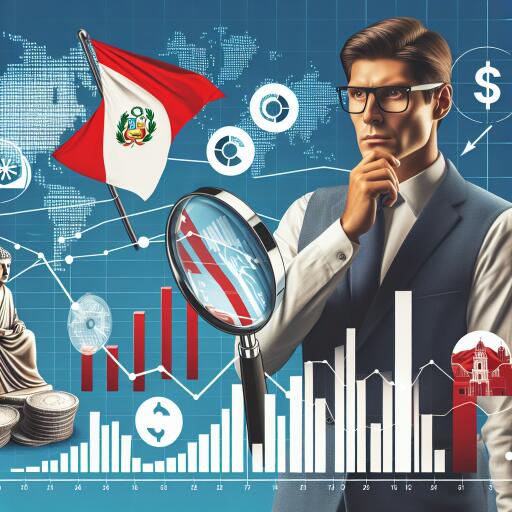What Javier Milei Could Learn from Peru’s Economic Successes
Since assuming office in December, Javier Milei, Argentina’s boldly libertarian president, has embarked on a radical mission to overhaul the nation’s economy. His aggressive reform strategy includes a significant devaluation of the peso by 50% and the commencement of subsidy phase-outs, equating to 0.7% of Argentina’s GDP. In a move to streamline government operations, the number of ministries has been slashed from eighteen to just nine. While Milei’s approach has captured attention, especially among supporters of former U.S. President Donald Trump, it may be beneficial for him to draw lessons from a neighbor’s economic playbook: Peru.
At first glance, Peru might appear an unlikely model of stability, given its recent political turmoil, including the rapid turnover of presidents and legislative bodies, and significant civil unrest. However, despite these challenges, Peru’s currency, the sol, has remained remarkably stable, maintaining its value against the dollar since 1999. This stability is particularly notable given Peru’s battle with hyperinflation in the 1980s, an ordeal Argentina is intimately familiar with.
In the face of hyperinflation, Peru undertook a drastic economic overhaul under President Alberto Fujimori in 1990. The reform package included unifying the exchange rate, eliminating subsidies, halting the printing of money, and dismantling capital controls and trade barriers. These efforts curbed inflation dramatically from 2,800% in 1989 to just 6% by 1998, setting the stage for consistent economic growth. Notably, Fujimori’s reforms also established the central bank’s independence, a critical factor in maintaining the sol’s credibility and stability.
Fast forward to today, and the Peruvian central bank enjoys the “total confidence” of financial markets, thanks in part to its prudent management and policy decisions, such as being among the first to raise interest rates in response to the global inflation spike in 2021. Moreover, Peru’s commitment to economic openness has fostered a burgeoning export sector and attracted steady flows of foreign investment, allowing the central bank to amass significant international reserves. These factors underscore the sol’s robustness against volatility.
Argentina could stand to benefit from adopting similar strategies. The root causes of the peso’s instability — persistent fiscal deficits financed by money printing and protectionist economic policies — could be addressed by embracing fiscal discipline and opening up the economy to more foreign and domestic investment. While Milei has expressed interest in drastic measures such as dollarization and the shuttering of the central bank, history suggests that addressing the underlying issues directly could offer a more sustainable path to economic stability.
Despite the allure of swift and sweeping reforms, Milei’s approach risks treating symptoms rather than the disease. Previous attempts at currency pegs and dollarization in Argentina have faltered without addressing fiscal irresponsibility and economic rigidity. Moreover, Milei’s confrontational style and reliance on decree over dialogue have stymied his reform efforts, evidenced by the recent withdrawal of a comprehensive omnibus bill amid Congressional resistance.
Peru’s experience offers a cautionary tale of the importance of institutional independence and economic pragmatism. While political instability continues to pose challenges, the sol remains a symbol of economic resilience, buoyed by a consensus around macroeconomic prudence and a central bank shielded from political whims. As Argentina grapples with its economic dilemmas, it may find valuable lessons in the quieter, more methodical approach that has helped Peru navigate crises and maintain currency stability.
As Milei looks to redefine Argentina’s economic landscape, the wisdom of Peru’s steadied course through tumultuous waters could serve as a beacon. The realization that radical change can coexist with careful economic stewardship might not only elevate Milei’s agenda but also provide Argentina with a much-needed foundation for enduring prosperity.
